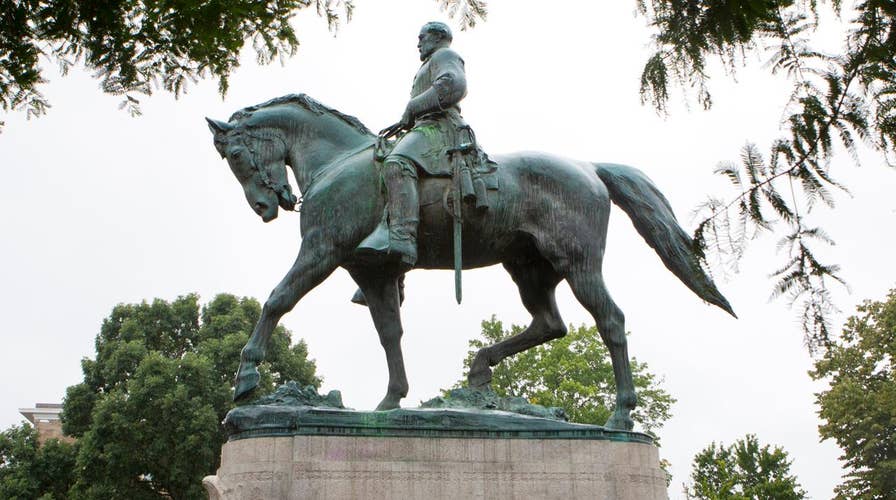Charlottesville sparks debate about Confederate monuments
Some people are taking matters into their own hands as tensions simmer after the attack; Doug McKelway explains on 'Special Report'
If you have kids and a television in your house, you probably got asked a lot of difficult questions about the events in Charlottesville this past weekend. Why are those people fighting? Why is everyone so angry? Why do people want to pull down statues? Is the president a racist?
My husband and I have never shied away from discussing difficult topics with our kids. From sex, to terrorism, to abortion, to immigration, and, yes, America’s history of slavery and racial discrimination. And, as the disturbing images of people beating each other with baseball bats flashed across our television and cell phones, we answered their questions about white supremacy, the KKK and antifa.
We talked about freedom of speech, even hateful speech. We discussed the South’s complicated history and the merits and drawbacks of taking down statues dealing with the Confederate era. We talked about why the descendants of slaves could be rightfully offended by certain monuments and whether communities should come together to peacefully determine their fate or allow an angry mob to decide.
We also, of course, discussed President Trump’s response and why some wanted to hear more and why others will never be satisfied, no matter what he says.
When you’re talking to your kids about Charlottesville, hate groups, racism, and all the sad vitriol and violence we see on the news these days, maybe we should all back up. Let’s first start by having more frequent conversations with our children about all that is right and good about America.
But in the end, these conversations can only take us so far because they don’t get to the heart of the problem. So much of what we saw in Charlottesville and in the incendiary media coverage of the tragedy has its roots in the fact that in America today a culture of identity politics. This culture has placed an unhealthy emphasis on the things that divide us, rather than what unites us – all under the banner of diversity.
It is good, right and honorable to celebrate the unique qualities and strengths of different people and cultures. But we are doing a great disservice to our children if do not place even more emphasis on teaching them to love and value the things that unite us all as Americans: the flag, the Constitution and our love of freedom.
When I was in grade school in the 1970s, we celebrated America’s melting pot. Today, that is considered offensive and kids are instead taught that we are a salad bowl. Even as young as middle school, students are encouraged to join clubs defined by race and sexual orientation, instead of uniting around common hobbies and interests.
My mother is an immigrant who felt it was her duty to learn English and assimilate in her new country. Today, assimilation is considered a bad, racist word by some. We know we are failing to instill our youth with basic American values when college students are the demographic most ambivalent about protecting the right to freedom of speech.
When you’re talking to your kids about Charlottesville, hate groups, racism, and all the sad vitriol and violence we see on the news these days, maybe we should all back up. Let’s first start by having more frequent conversations with our children about all that is right and good about America. The media, Hollywood, and our schools and universities stopped doing this a long time ago.
It’s up to parents and grandparents to keep bringing kids back to the values that unite us and bind us together as Americans – regardless of race, religion, or political party. If our kids learn to have these conversations from that starting point, we can be sure it will end up better than it did in the aftermath of Charlottesville.









































